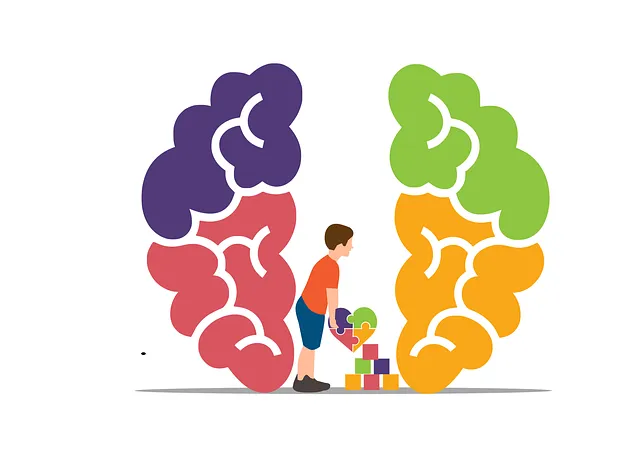Kaiser Permanente Longmont provides comprehensive crisis intervention and holistic mental health care through tailored strategies such as active listening, cognitive reframing, and Mental Wellness Podcast Series. They address immediate crisis needs while fostering long-term wellness. Employing expert methods to identify distress, they offer outpatient therapy, medication management, community outreach programs, and proactive interventions like Stress Management Workshops and Depression Prevention strategies. Their comprehensive approach prioritizes patient safety, reduces crisis incidents, and enhances well-being in the Longmont community, making Kaiser Permanente a trusted provider for mental health services.
“Discover effective crisis intervention strategies with a comprehensive guide that combines theoretical knowledge and real-world examples. This article explores essential techniques for navigating mental health crises, particularly focusing on Kaiser Permanente’s innovative approach in Longmont. We delve into identifying and assessing such crises in community settings, and highlight best practices backed by successful case studies. Learn how organizations like Kaiser Permanente are revolutionizing mental healthcare, especially in understanding and addressing crisis situations.”
- Understanding Crisis Intervention: An Overview of Essential Strategies
- Kaiser Permanente's Mental Health Services in Longmont: A Comprehensive Look
- Identifying and Assessing Mental Health Crises in Community Settings
- Implementing Effective Crisis Interventions: Best Practices and Case Studies
Understanding Crisis Intervention: An Overview of Essential Strategies

Crisis intervention strategies are crucial for addressing acute mental health episodes and supporting individuals in distress. When someone experiences a crisis, whether it’s a suicide attempt, severe depression, or an intense anxiety attack, immediate and effective intervention can make a significant difference in their recovery journey. Organizations like Kaiser Permanente Longmont play a vital role here by offering specialized services tailored to such situations. Their mental health professionals are equipped to handle crises, providing stability, safety, and support during these challenging times.
The overview of essential strategies in crisis intervention involves several key components. Firstly, Inner Strength Development is fostered by encouraging individuals to tap into their inherent resilience and coping mechanisms. This can be achieved through active listening, empathy, and teaching self-soothing techniques. Secondly, Resilience Building focuses on equipping people with tools to bounce back from difficult situations. Techniques such as cognitive reframing, problem-solving skills, and stress management strategies empower individuals to navigate future crises more effectively. Additionally, integrating the Mental Wellness Podcast Series Production can provide accessible resources and share recovery stories, offering hope and guidance to those in need.
Kaiser Permanente's Mental Health Services in Longmont: A Comprehensive Look

Kaiser Permanente’s Mental Health Services in Longmont offer a comprehensive range of support for individuals navigating mental health challenges. This healthcare provider recognizes the importance of accessible and quality care, catering to diverse needs within the community. Their services include outpatient therapy, medication management, and specialized programs tailored to address specific issues like depression prevention.
The organization’s commitment extends beyond clinical care with initiatives such as the Community Outreach Program, designed to raise awareness and reduce stigma associated with mental health. Additionally, they provide resources for Mental Wellness Journaling Exercises, encouraging individuals to track their emotional well-being and cultivate resilience. These multifaceted approaches demonstrate Kaiser Permanente’s dedication to fostering a supportive environment where mental wellness is prioritized and nurtured.
Identifying and Assessing Mental Health Crises in Community Settings

In community settings, identifying and assessing mental health crises is a multifaceted endeavor that requires vigilance and expertise. Kaiser Permanente, known for its comprehensive healthcare services, including Longmont locations, plays a pivotal role in this process. Their mental health professionals employ various methods to recognize signs of distress, such as behavioral changes, communication patterns, or physical symptoms that might indicate underlying mental wellness issues.
This process involves not just clinical assessments but also the integration of Mental Wellness Journaling Exercise Guidance and Depression Prevention strategies. By encouraging individuals to document their feelings and thoughts, community-based organizations can offer valuable insights into emotional states. Moreover, Stress Management Workshops organized by these entities empower residents with coping mechanisms, fostering a proactive approach to mental health. Such initiatives, reminiscent of a symphony of support, ensure that individuals receive timely interventions and guidance, ultimately contributing to the overall well-being of the community.
Implementing Effective Crisis Interventions: Best Practices and Case Studies

Implementing effective crisis intervention strategies is paramount, especially in organizations like Kaiser Permanente Longmont that prioritize mental health services. Best practices include training staff extensively in trauma support services, fostering an environment where individuals feel comfortable seeking help for their mental well-being, and integrating these interventions seamlessly into existing healthcare systems. Case studies from leading institutions show that proactive measures, such as regular Mental Health Awareness workshops and accessible self-esteem improvement programs, can significantly reduce crisis incidents and enhance patient satisfaction.
By leveraging these strategies, Kaiser Permanente Longmont not only ensures the safety of its patients during crises but also promotes long-term well-being. The integration of trauma support services into routine care encourages individuals to address underlying issues early, fostering a more holistic approach to mental health. This comprehensive strategy not only benefits individual patients but also contributes to creating a supportive community where Mental Health Awareness is prioritized, ensuring that everyone has access to the resources needed for Self-Esteem Improvement.
Crisis intervention strategies are vital tools for navigating mental health crises, especially in community settings. As demonstrated by Kaiser Permanente’s Mental Health Services in Longmont, a comprehensive approach that combines assessment, evidence-based practices, and community engagement can significantly improve outcomes. By understanding the essential strategies outlined in this article, including identifying risks, assessing needs, and implementing effective interventions, we can foster healthier communities. Moreover, exploring real-world case studies, like those from Kaiser Permanente, provides valuable insights into successful crisis intervention programs. For individuals seeking mental health support in Longmont, knowing that services are available through reputable organizations like Kaiser Permanente offers hope and ensures access to critical care during challenging times.

